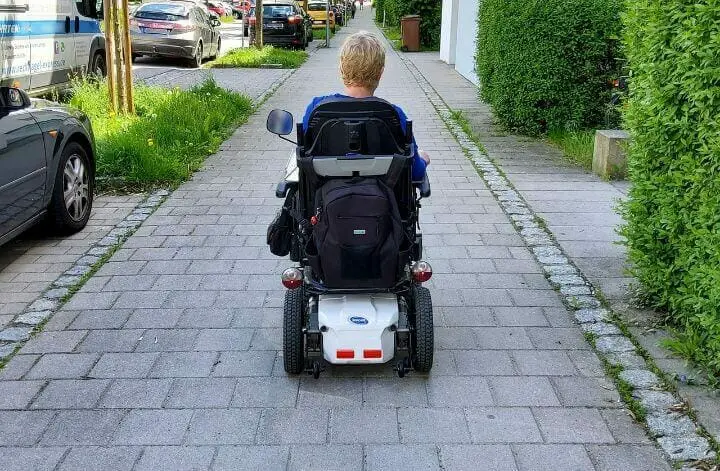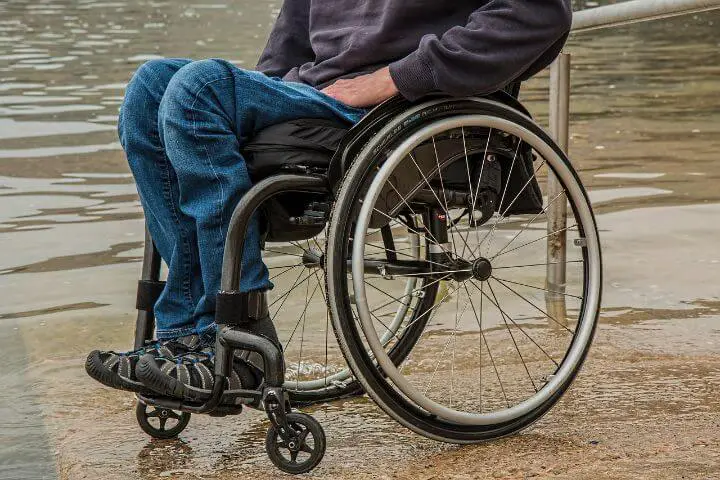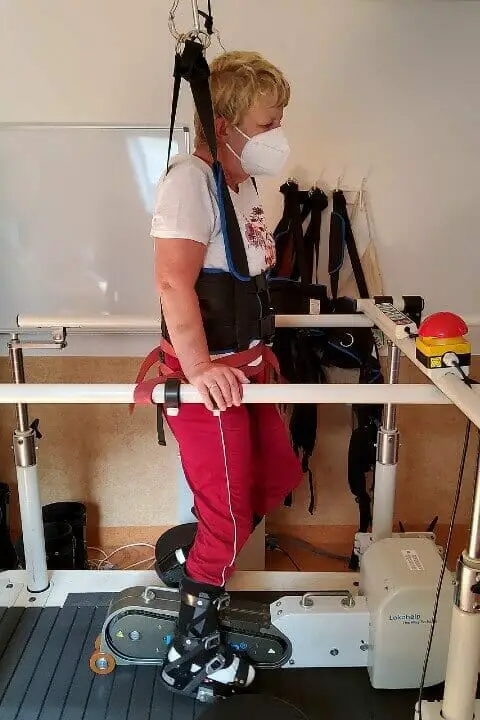Experiencing a life-altering event, especially one that changes how you need to live your daily life, is a really big deal and can be tough to adapt to. An accident or illness that leaves you paraplegic will mean that certain daily events will drastically change how you live your life and how you complete daily tasks.
The good news is that there are ways to adapt your daily tasks for leaving with paraplegia, and this means you can maintain your independence as much as possible. There may be some support and resource aids required, but with the right approach you will definitely be able to live and enjoy a very full life.
Contents
Understanding Paraplegia
When it comes to living with paraplegia, the most important part of this condition is to understand that it will affect everyone just a little bit differently. In some cases, people will be fairly independent and able to manage daily life on their own for the most part.
In other cases, depending on where the injury is in the spinal cord, people will be far less independent and will require a little more help with daily tasks.
Due to the fact that everyone experiences life as a paraplegic differently, it’s important to think about recovery and daily life with an individual approach and finding the best thing that works for each person.
On top of that, individuals with a spinal cord injury may experience some recovery over a period of years so their physical functions may improve with rehabilitation and time.
If you have experienced an incomplete spinal cord injury, the best way to regain function is to complete repetitive tasks every single day.
These task-specific movements may help the spinal cord to remember the demand for that movement and can help neural rewiring so that connection between the brain and the spinal cord gets stronger.
The Importance of Occupational Therapy
Many people know about physical therapy, but occupational therapy is also an important part of living with paraplegia. It’s a little lesser known, but the function of occupational therapy will help with recovery for sure.
What Is Occupational Therapy?
Occupational therapy helps patients by focusing on preparing them for the transition back to everyday life.
When you’ve been in a hospital or care facility, there has likely been a lot of assistance with daily tasks so the changes to your everyday life may not be as obvious. The challenges, though, for individuals living with paraplegia will become very pronounced when you go home.
It’s important during your occupational therapy that you ask for help with the specific things you know you will need to do every day.
Our homes are pretty unique so you know what you will need to know how to do and how to take care of yourself on a daily basis.
You might also like Sexuality and Paraplegia – Is Pleasure Possible Post Paralysis?
Adapting at Home
As mentioned, physical therapy will help an individual to recover by focusing on improved mobility through physical exercise but occupational therapy takes a more holistic approach to adapting to daily activities and tasks.
These activities can include grooming, toileting, transferring, bathing and dressing. Examples of this can include learning how to use
-
- Leg lifters to help get in and out of bed
- Shower seats help reduce the chance of slipping, but also giving you the ability to bathe on your own
- Transfer benches to get in and out of the shower
- Using a wheelchair to maneuver around your home
Learning new ways to adapt to these tasks you’ve been doing for years may be frustrating – at first – but this will help you to maintain your independence as much as possible and will help with your recovery, long-term.
Additionally, an occupational therapist may come out and visit your home to make suggestions on how to make life a little bit easier for you. This could include home aids and modifications, like a ramp for your wheelchair or stair chair lifts if your home has stairs.
Adapting at Work or School
At some point, you will likely have to go back to work (or school) as you won’t just be staying at home all day. Knowing this, you may have to find ways to adapt to going to work or school every day so that you can continue enjoying your life.
Your occupational therapist will have knowledge about your rights in the workplace, including information on the Americans with Disabilities Act and the Individuals with Disabilities Education Act.
Both of these are designed to help people living with paraplegia and make sure the accommodations they need are in place and they can succeed.
Some accommodations your employer could make include
- Supplying adaptive equipment so you can complete your duties
- Working with you on a more flexible schedule
- Providing a little extra time to complete your duties (if needed)
- Ensuring your work environment is wheelchair accessible, including having a wheelchair accessible washroom.
For people who already have a desk job, going back to work may not be that big of a change for you however if you need accommodations to complete your job it will be your responsibility to let your employer know what you need. If you are looking for the best jobs for a wheelchair user, we made a list of suggestions.
If your job previously was more active or required a lot of movement, it may not be feasible for you to go back to the exact job you had. You may want to approach your employer and talk to them to see if there’s another position you can move to that you can complete.
If your career in general just isn’t an option to return to, you may be looking at a career change which could mean going back to school.
There are many resources with a vocational rehabilitation program where they can assess your skills and abilities, and they will be able to suggest possible career options.
You might also like Lifting a Paraplegic
Driving With Paraplegia
One of the biggest parts of independence is our ability to drive so we can come and go as we please. However being paraplegic will completely change how you get yourself around. Driving with paraplegia is not impossible, by any means, but you will likely need to re-learn how to drive.
There are occupational therapists who specialize in driving rehabilitation. They will evaluate your current functional abilities and assess whether you can safely drive again, along with recommendations about how to modify your car.
With current technology, there are many adaptive aids to modify your car so that you can drive with paraplegia and they compensate for limited (or no) mobility in your legs.
Tips for Living With Paraplegia
Adapting to life in a wheelchair is going to take some time, and you will likely feel a little frustrated at first. There are a few tips that can help you adapt to being paraplegic and make your life just a little bit easier.
Delay Using Adaptive Aids
While modifications and adaptive aids can really help make the life of someone who is paraplegic easier, they can also hold them back.
Many people who have these adaptive aids can become over reliant on them and ultimately slow down their recovery. If you can do things on your own without the aids, try to do them and only resort to using the adaptive aids when absolutely necessary.
See a Therapist
While living with paraplegia primarily effects your physical abilities, it will also take a huge toll on your emotional well-being.
Attending therapy can help you get your frustrations out and learn how to effectively deal with the feelings you’re having about this massive change in your life. There are therapists who specialize in adapting to and living with paraplegia.
Engage in Physical Therapy
A physical therapist will be able to develop a personalized exercise regimen based on your current physical abilities. By following this regiment your recovery will be that much better and you will notice positive changes in your mobility and physical functionality.
Seek a Support Group
There is no one who will understand what living with paraplegia is like quite like another person who is paraplegic. Support groups will connect you with others who are living in a similar situation and you can share experiences and stories, and find friends who are going through the same things you are.
By sharing with others, you will be able to find new ways to manage the complications you are living with and you know that you are not alone when going through this.
Be Patient
This is going to be the most frustrating part, and the hardest tip to follow. It’s going to take time for you to regain function and recover from your injury.
It takes thousands of repetitive movements to stimulate neuroadaptive changes, so it won’t happen overnight. Trust the process and program that your medical team has put together and just give it time. Keep practicing!
Stay Positive
Going through an injury like this is truly life-changing, and knowing that you may be limited in the things you can do or that you may never be able to do certain things again can leave you feeling depressed and alone.
There have been studies showing the more positive mindset you have, the better your recovery outcome could be. Surround yourself with people who love and support you, and know that your life is still going to be filled with enjoyment and you’re not less than because of living with paraplegia.




